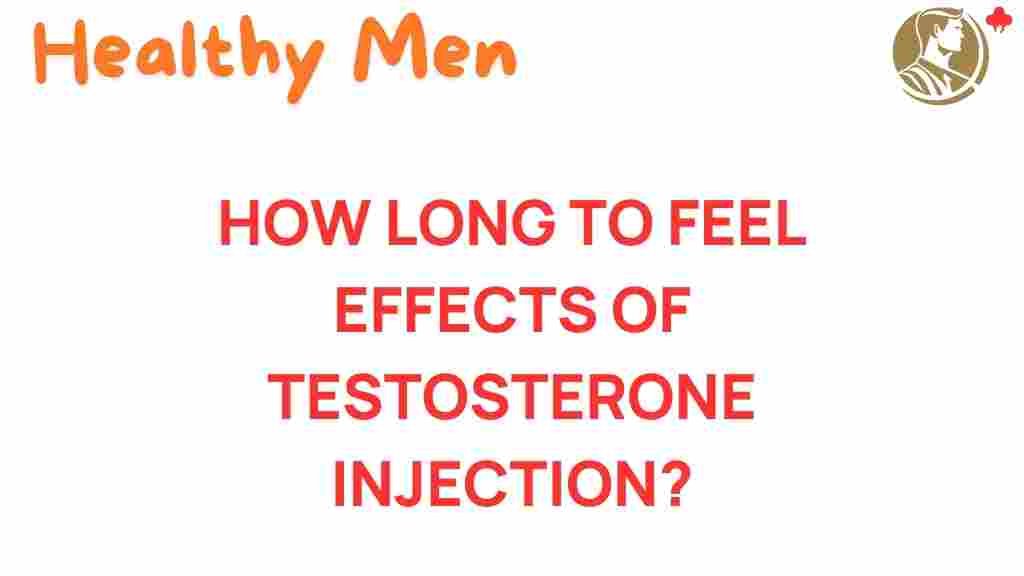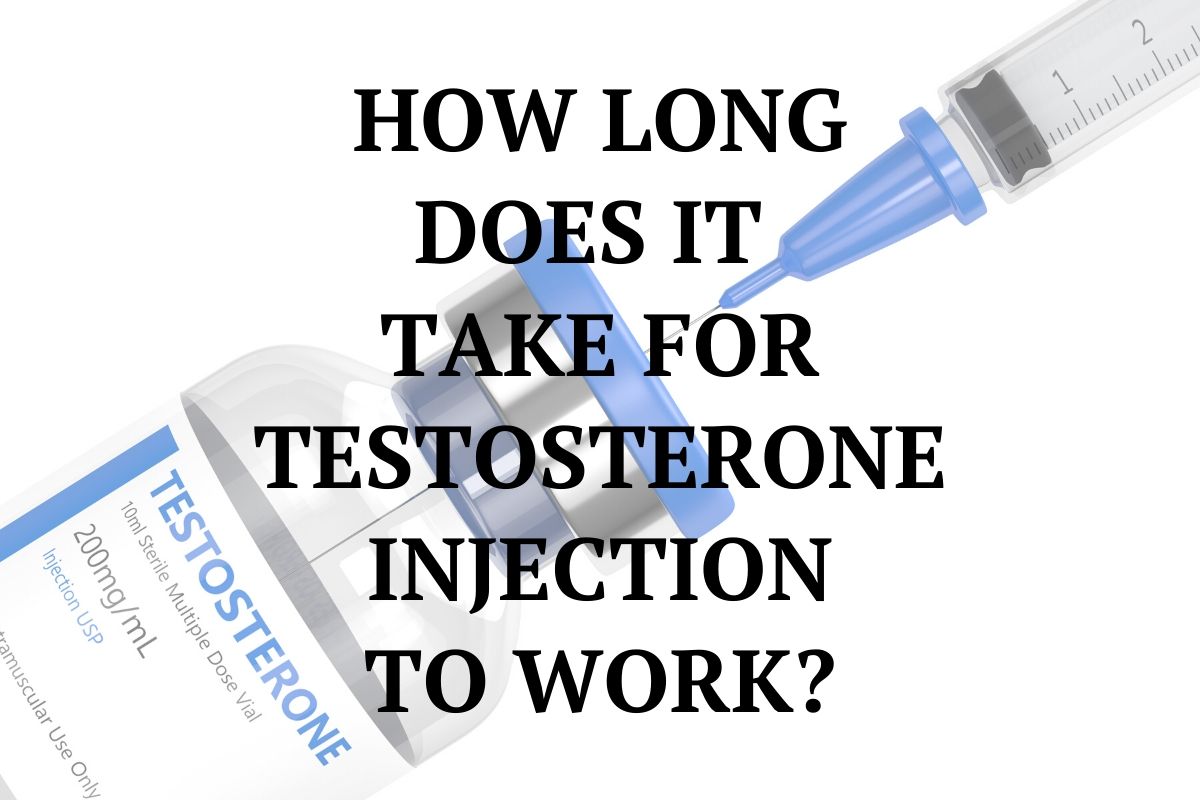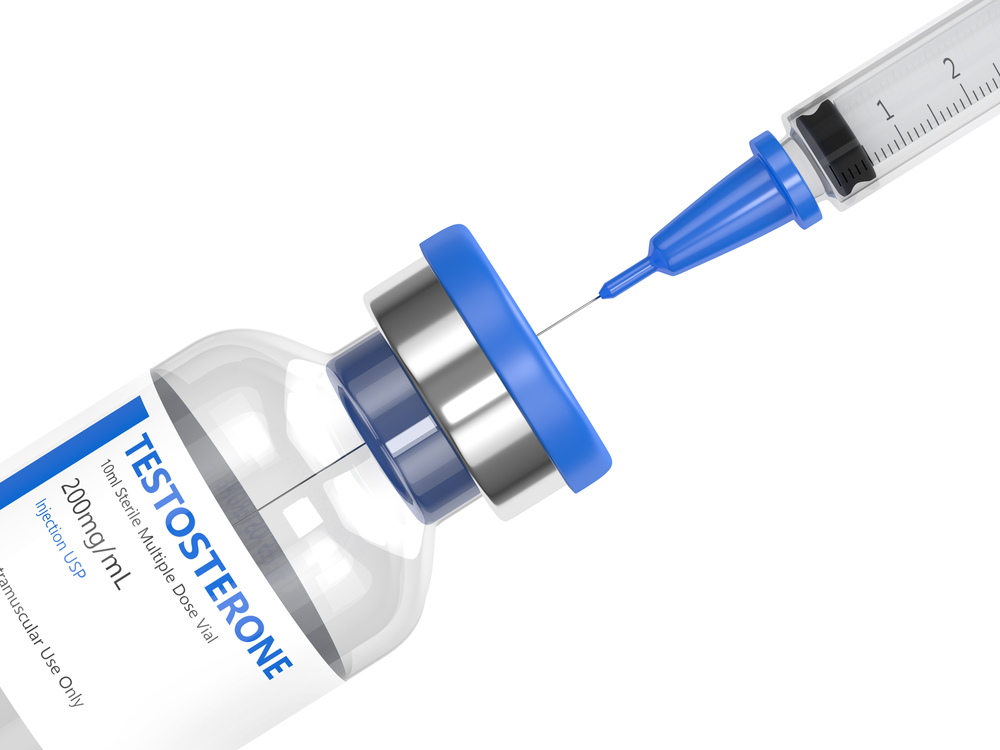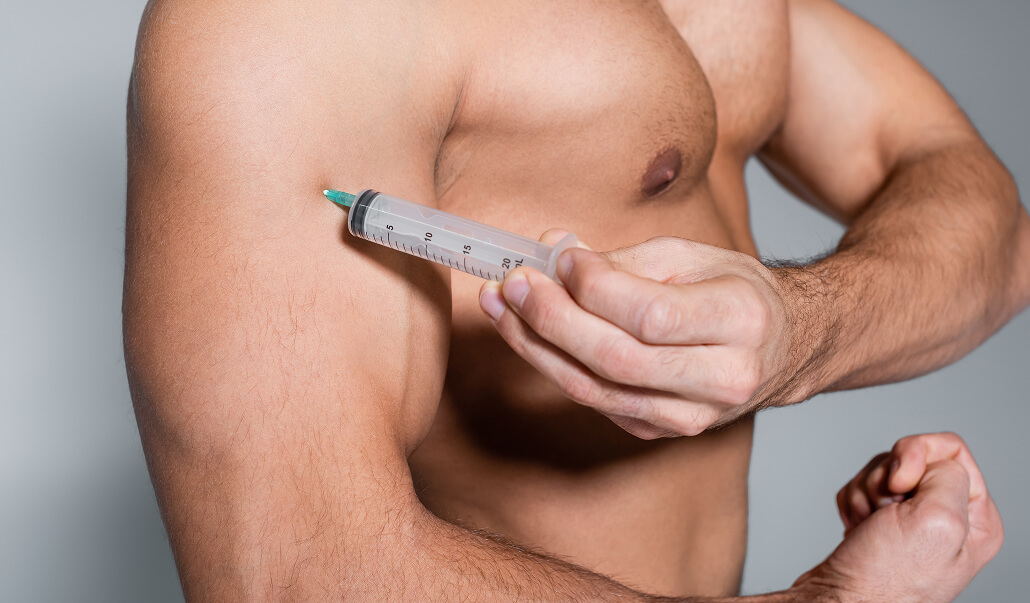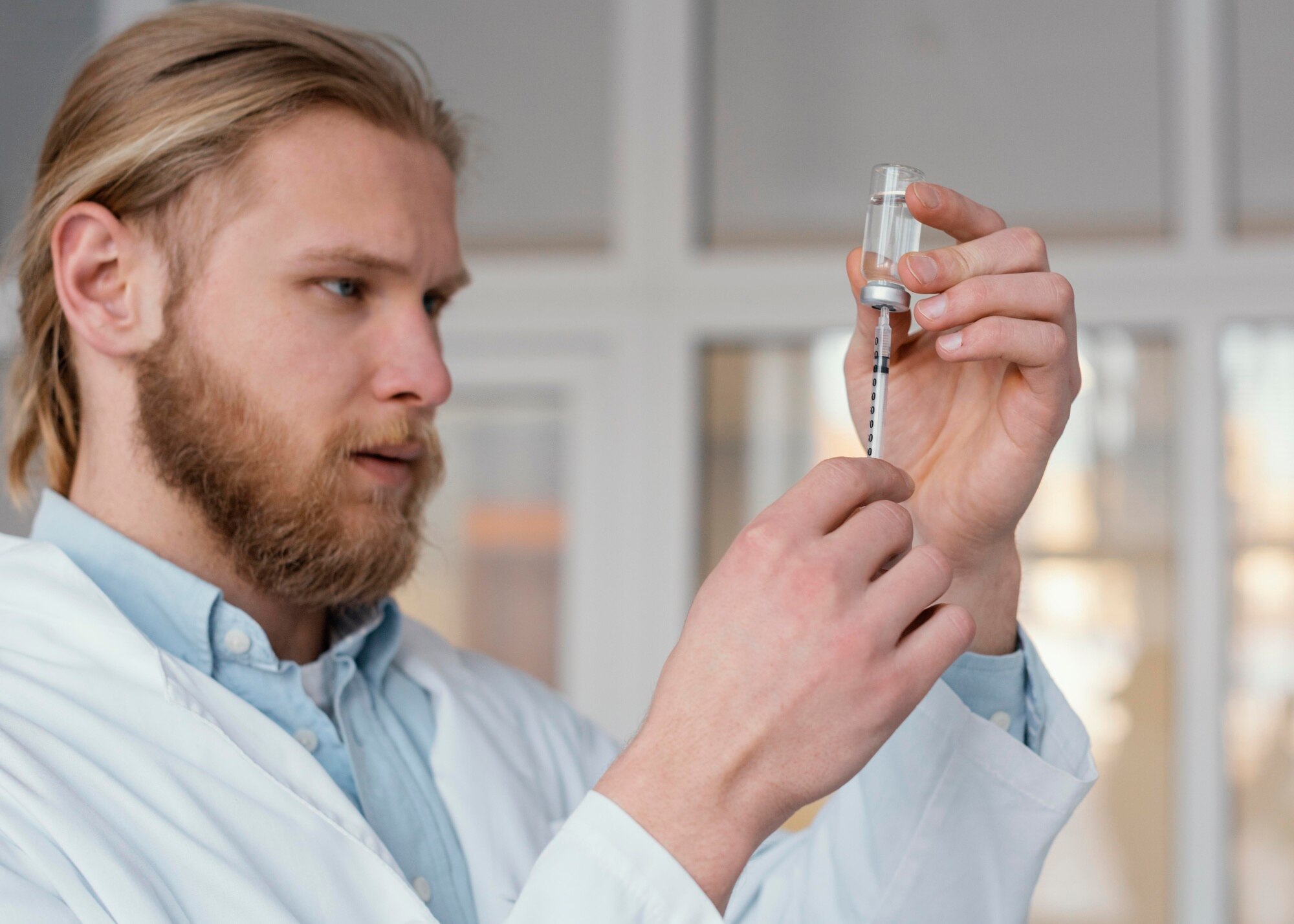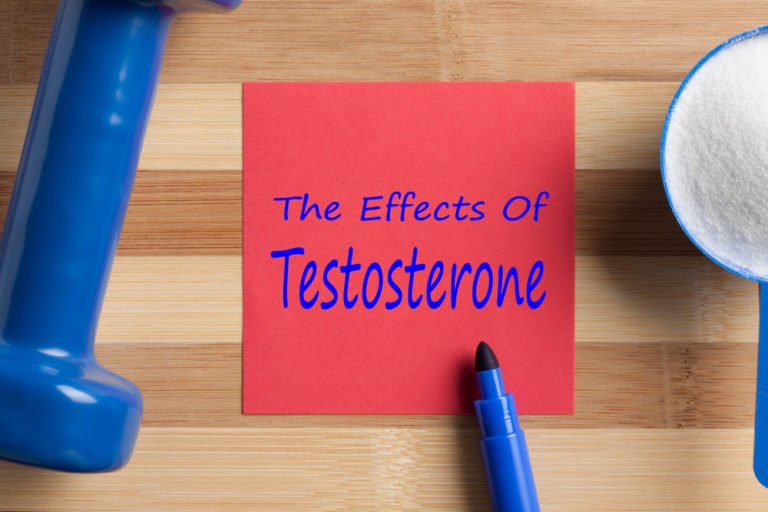How Long Does It Take To Feel Testosterone Injections

For men grappling with the effects of low testosterone, testosterone replacement therapy (TRT) via injections offers a potential path to reclaiming energy, libido, and overall well-being. However, a common question among those considering or starting TRT is: How long does it take to actually feel the effects of testosterone injections?
The answer, as with many aspects of health, is nuanced and varies depending on individual factors. While some men may experience noticeable changes within a few weeks, others may require several months to fully realize the benefits. Understanding the expected timeline and the factors that influence it is crucial for managing expectations and ensuring treatment adherence.
The Variable Timeline of Testosterone Effects
The onset of testosterone's effects is not instantaneous. It's a gradual process, influenced by variables such as the individual's initial testosterone levels, the dosage and type of testosterone being administered, and their overall health.
Generally, the first noticeable changes often involve improvements in energy levels and mood. Some men report feeling more alert and less fatigued within the first few weeks of starting injections.
According to various studies and clinical observations, here's a general timeline of what to expect:
- Weeks 1-3: Increased energy, improved mood, and enhanced libido are often the first effects reported.
- Weeks 4-6: Muscle strength and mass may start to increase, although significant changes usually take longer.
- Weeks 6-12: Bone density may begin to improve, and red blood cell production increases. This can lead to enhanced oxygen-carrying capacity and further improvements in energy levels.
- Months 3-6: Deeper voice and hair growth may be observed. These are slower-acting effects that require sustained testosterone levels.
Factors Influencing the Timeline
Several factors can affect how quickly and effectively testosterone injections work. Understanding these can help individuals better manage their expectations and work with their healthcare providers to optimize their treatment plan.
Dosage and Type of Testosterone: The prescribed dosage and the specific type of testosterone ester (e.g., testosterone cypionate, testosterone enanthate) play a significant role. Higher dosages may lead to faster initial effects, but they also increase the risk of side effects. Different esters have varying release rates, which influence how frequently injections are needed and the consistency of testosterone levels.
Baseline Testosterone Levels: Individuals with severely low initial testosterone levels may experience more dramatic and rapid improvements compared to those with only mildly deficient levels. The body is more responsive to the influx of testosterone when it is starting from a lower baseline.
Age and Overall Health: Age and overall health status can impact how the body responds to TRT. Younger men may experience faster and more pronounced results due to their generally better overall health. Underlying medical conditions, such as diabetes or obesity, can hinder the effectiveness of testosterone therapy.
Lifestyle Factors: Diet, exercise, and sleep habits also play a crucial role. A healthy diet, regular exercise (especially resistance training), and adequate sleep can synergistically enhance the benefits of TRT and accelerate the timeline of improvements.
The Importance of Monitoring and Patience
Regular monitoring by a healthcare professional is essential throughout TRT. Blood tests are crucial for tracking testosterone levels, adjusting dosage as needed, and monitoring for any potential side effects.
Patience is also key. It's important to understand that TRT is not a quick fix. It requires consistent administration, regular monitoring, and lifestyle adjustments to achieve optimal results. Frustration and premature discontinuation of treatment can occur if expectations are not managed properly.
It's crucial for individuals considering or undergoing TRT to have open communication with their healthcare provider. Discussing realistic expectations, potential side effects, and the importance of lifestyle modifications can significantly improve treatment outcomes and overall satisfaction.
"The key is to have a collaborative relationship with your doctor," says Dr. John Smith, an endocrinologist specializing in hormone replacement therapy. "Regular blood work and open communication about how you're feeling are essential for optimizing your treatment plan."
Ultimately, the journey to experiencing the full benefits of testosterone injections is a marathon, not a sprint. While some improvements may be noticeable relatively quickly, sustained and significant changes require time, consistency, and a collaborative approach between the patient and their healthcare provider.

